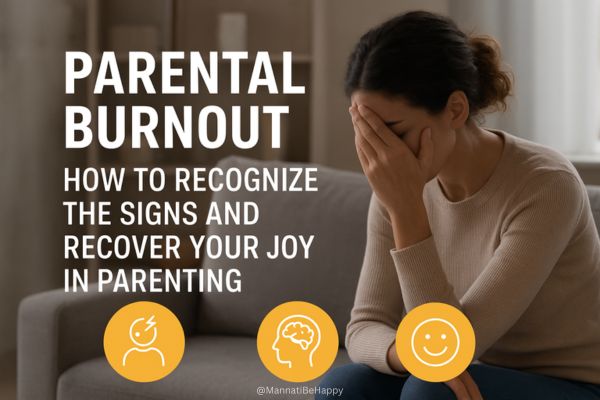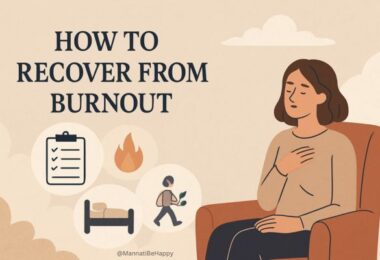Parenting is often described as one of life’s most rewarding roles—but it’s also one of the most demanding. Between sleepless nights, endless chores, emotional responsibilities, and the pressure to “do it all,” many parents reach a breaking point. This state is known as parental burnout—a condition where physical, emotional, and mental exhaustion collide, leaving you feeling drained, detached, and overwhelmed.
Recognizing the signs early can help you recover before burnout takes a serious toll on your health, relationships, and sense of self.
What Is Parental Burnout?
Parental burnout occurs when chronic parenting stress outweighs the resources you have to cope. Unlike temporary tiredness, burnout is an ongoing state of depletion. You may still love your children deeply, but you feel you have nothing left to give.
It’s not a reflection of your capability or love—it’s a sign you’ve been giving too much without enough rest, support, or self-care.
Signs You Might Be Experiencing Parental Burnout
-
Constant Fatigue
Even after rest, you feel physically and emotionally exhausted. -
Irritability and Short Temper
Small things set you off more than usual—snapping at your kids or partner without meaning to. -
Feeling Emotionally Numb
You go through the motions but feel disconnected from your children or your role as a parent. -
Loss of Joy in Parenting
Activities that once made you happy now feel like burdens. -
Guilt and Self-Criticism
You constantly feel you’re not doing enough, even though you’re already at your limit.
Causes of Parental Burnout
-
Unrealistic Expectations – Trying to be the “perfect parent” at all times.
-
Lack of Support – Shouldering parenting duties alone without help from a partner, family, or community.
-
Work-Life Imbalance – Struggling to meet professional and parenting responsibilities.
-
Societal Pressure – Social media and cultural ideals raising impossible standards.
How to Recover from Parental Burnout
1. Acknowledge and Accept
The first step is recognizing that burnout is real—and it’s okay to ask for help. You’re not failing; you’re human.
2. Build a Support System
Reach out to your partner, family, or friends. Join parenting support groups—sometimes just talking to someone who understands makes a huge difference.
3. Schedule Breaks Without Guilt
Even short breaks during the day can help. Let your child watch a safe program, play independently, or be cared for by a trusted person while you rest.
4. Lower the Bar
You don’t need to do everything perfectly. Focus on what’s truly essential and let go of unnecessary pressure.
5. Prioritize Self-Care
This could mean taking a walk, meditating, reading, or pursuing a hobby. Your needs matter as much as your child’s.
6. Seek Professional Help
If burnout is severely affecting your mental health, consider therapy or counseling. Professionals can help you create coping strategies tailored to your situation.
Final Thoughts
Parental burnout doesn’t mean you’re a bad parent—it means you’ve been running without a refill for too long. By recognizing the signs early and making intentional changes, you can regain your energy, patience, and joy in parenting.
Remember: taking care of yourself is taking care of your children.




